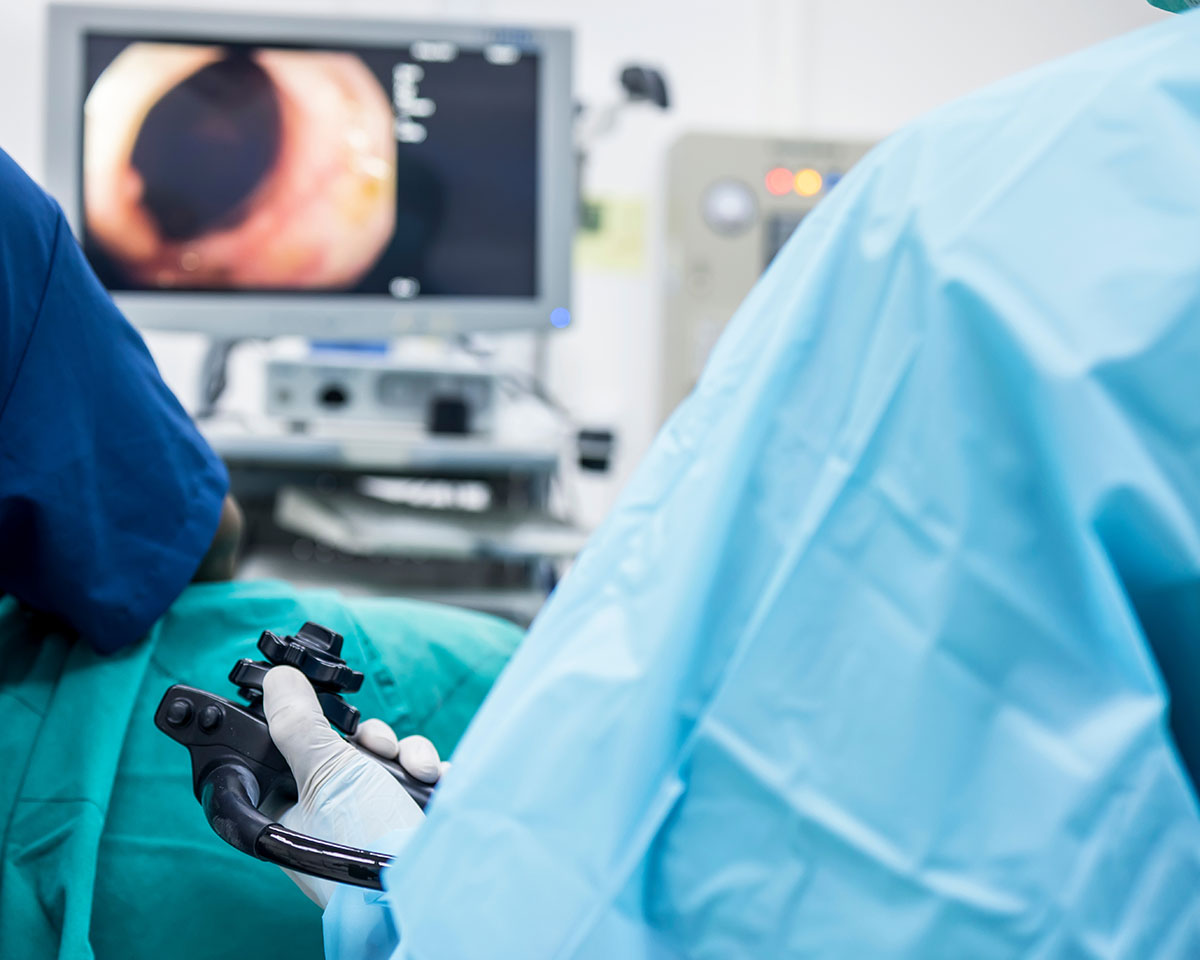To maintain optimal health, understanding when to seek medical intervention is crucial. One such intervention is a colonoscopy, a diagnostic procedure allowing doctors to closely examine the inner lining of your colon and rectum.
This process gently guides a flexible tube equipped with a camera through the colon, providing real-time imagery to identify abnormalities.
This article aims to illuminate the gastrointestinal problems and other key signs you need a colonoscopy screening, vital step in detecting issues like colon cancer and ensuring gastrointestinal wellness.
Table of Contents
Toggle1. Persistent Change In Bowel Habits
Regular bowel habits differ from person to person but generally involve a consistent pattern in stool frequency and appearance. A healthy digestive tract and bowel movements could range from three times a day to three times a week, depending on the individual.
Several factors can lead to alterations in bowel habits, ranging from diet and lifestyle changes to stress and infections.
However, persistent changes, especially those lasting over a few weeks, could signal underlying health issues. Conditions such as bowel cancer, inflammatory bowel diseases like Crohn’s disease or ulcerative colitis, and irritable bowel syndrome (IBS) can manifest as changes in bowel habits.
2. Blood In Stool Or Rectal Bleeding
If you notice blood in the stool or rectal bleeding is a symptom that should always be taken seriously. Common causes include:
- Haemorrhoids (swollen blood vessels in and around the anus and lower rectum).
- Anal fissures (small tears in the lining of the anus).
- Diverticulosis (small pouches in the colon wall).
However, these symptoms can also indicate more severe conditions like bowel cancer or inflammatory bowel diseases.
Bloody stools offer clues about the source of bleeding. Bright red blood usually suggests bleeding from the lower colon or rectum, while darker blood or blood mixed within the stool indicates an issue higher in the colon. Other associated symptoms can include abdominal pain, a sensation of incomplete bowel evacuation, and changes in bowel habits.
A colonoscopy enables a comprehensive examination of the colon and rectum, helping identify the bleeding source. During the procedure, if any abnormal growths or areas of inflammation are detected, tissue samples can be taken for further analysis, aiding in the accurate diagnosis and effective management of the underlying condition.

3. Persistent Abdominal Discomfort or Pain
Abdominal discomfort or pain that persists over time can be a significant warning sign of potential gastrointestinal issues, including colon cancer. This pain may manifest as a constant ache, sharp pains, or general discomfort in the abdominal area. While many conditions can cause such symptoms, persistent pain should never be ignored.
A colonoscopy can play a crucial role in identifying the underlying cause of this pain. This diagnostic procedure allows doctors to visually examine the inner lining of your colon and rectum for abnormalities.
Causes for abdominal pain might range from benign issues like irritable bowel syndrome (IBS) to more serious concerns such as colon polyps or bowel cancer.
The presence of colon polyps, which are growths on the inner lining of the colon, can sometimes lead to cancer if left unchecked. Through a colonoscopy, these polyps can be identified and often removed before they develop into cancer.
4. Unexplained Weight Loss
Experiencing unexplained weight loss can be alarming. This symptom, especially when accompanied by changes in bowel habits or rectal bleeding, should be taken seriously as it can be indicative of bowel cancer or other serious digestive disorders.
Weight loss might occur because a disease in the colon can affect the body’s ability to absorb nutrients properly. Additionally, certain gastrointestinal conditions can lead to a decreased appetite or a feeling of fullness after eating only a small amount of food, contributing further to weight loss.
When you undergo a colonoscopy, your doctor looks for signs that might explain this weight loss. They might find inflammation, blockages, or growths causing these symptoms. The procedure can also help in the detection of colon cancer, which is a significant concern behind unexplained weight loss.
Colon cancer, if caught early, can often be treated effectively. This is why recognising these symptoms and opting for a timely colonoscopy is crucial. The procedure helps diagnose the issue and sets the stage for the necessary treatment plan.

5. Unexplained Anaemia (Low Red Blood Cell Count)
Anaemia, characterised by a lower than normal red blood cell count, can be a silent signal pointing towards underlying health issues, including colon cancer. It’s crucial to understand that while anaemia can be caused by various factors, such as nutritional deficiencies or chronic diseases, it can also be a sign of internal bleeding.
This internal bleeding could very well originate from the colon or rectal areas. When you experience symptoms such as fatigue, weakness, or paleness alongside unexplained anaemia, it’s important to consider the health of your gastrointestinal tract. A colonoscopy becomes a vital tool in such situations.

Other Factors That Affect Your Need For A Colonoscopy
While the symptoms mentioned above are direct indicators suggesting the need for a colonoscopy, other factors might influence this decision.
The Right Age
Age is a significant factor in determining the necessity of a colonoscopy. Generally, individuals aged 50 and above are at a higher risk of developing colon cancer.
Therefore, routine colonoscopies are often recommended for this age group. This proactive approach helps in the early detection and treatment of any potential issues, including precancerous polyps that could develop into bowel cancer.
Family History
Your family history plays a crucial role in assessing your risk for colon cancer. If you have a family history of colon or bowel cancer or a related condition, your doctor might recommend earlier or more frequent colonoscopies. Genetic factors can significantly increase your risk of developing these cancers.
Why Skipping A Colonoscopy Can Be Fatal
The importance of a colonoscopy cannot be overstated, especially regarding colon cancer screening. Colon cancer, if detected early, can often be treated effectively.
However, if ignored, the condition can progress and become fatal. A colonoscopy allows doctors to search for, identify, and even remove polyps. These polyps, which are small growths, can develop into cancer over time when left alone.
Early removal of these polyps significantly reduces the risk of cancer.
Moreover, symptoms like rectal bleeding, abdominal pain, and changes in bowel habits often go unnoticed or are attributed to less serious conditions. This delay in diagnosis can lead to the cancer advancing to a more severe stage, making treatment more complicated and less likely to succeed.
Colonoscopy Alternatives
While colonoscopy is the gold standard for colorectal cancer screening and diagnosis, several alternative methods are available for those who cannot undergo this procedure or prefer different options. Here’s a brief overview of some common alternatives:
- Fecal Immunochemical Test (FIT): This non-invasive test detects hidden blood in the stool, which can be a sign of colon cancer. It’s usually done annually and requires no special preparation or dietary restrictions.
- Virtual Colonoscopy (CT Colonography): This imaging test uses CT scans to visually examine the colon. It requires the same bowel preparation as a regular colonoscopy but doesn’t involve sedation or inserting a scope into the colon. It’s usually recommended every 5 years.
- Double-Contrast Barium Enema (DCBE): This X-ray exam of the colon and rectum uses a barium solution and air to provide clear images of the lining of the colon. It’s less commonly used now but can be an option for some patients.
Each of these alternatives has its own pros and cons, and none is as comprehensive as a traditional colonoscopy. Therefore, it’s essential to discuss with your healthcare provider the best option for your individual health needs and risk factors.

Conclusion On Signs You Need A Colonoscopy
A colonoscopy is a critical tool in the early detection and prevention of colon and bowel cancer. Recognising the signs that you may need a colonoscopy is crucial.
If you experience any of these symptoms, it’s essential to consult a healthcare professional promptly. Remember, early detection through a colonoscopy can save lives. Dr. QM Leong is an experienced colorectal surgeon in Singapore who is equipped to provide thorough evaluations and treatments.
Schedule a consultation if you have any concerning changes in your gut health. Your well-being may depend on it.
Frequently Asked Questions On Signs You Need A Colonoscopy
How Often Should One Undergo A Colonoscopy?
Typically, a colonoscopy is recommended every ten years starting at age 50. However, if polyps are found or if there are other risk factors, more frequent colonoscopies may be necessary.
Can A Colonoscopy Detect Conditions Other Than Colon Cancer?
Yes, a colonoscopy can detect a variety of conditions apart from colon cancer, such as inflammatory bowel disease (IBD), diverticulosis, and polyps that could potentially turn into cancer.
Is There Any Preparation Required Before A Colonoscopy?
Preparation typically involves a clear liquid diet for a day or two before the procedure and taking a bowel-cleaning solution to empty the colon.
Are There Any Risks Associated With A Colonoscopy?
Colonoscopies are generally safe, but like any medical procedure, they carry risks, such as bleeding, perforation of the colon, and reactions to sedation.
How Long Does A Colonoscopy Procedure Take?
The procedure will usually take anywhere from 30 to 60 minutes. Still, you should plan for more time to include preparation and recovery from sedation.





